
Find Help
More Items From Ergsy search
-

Is the bubonic plague contagious between humans?
Relevance: 100%
-

What is Bubonic Plague?
Relevance: 76%
-

What is the bubonic plague?
Relevance: 70%
-

How is the bubonic plague transmitted?
Relevance: 69%
-

Are there vaccines for the bubonic plague?
Relevance: 65%
-

Can the bubonic plague be prevented?
Relevance: 65%
-
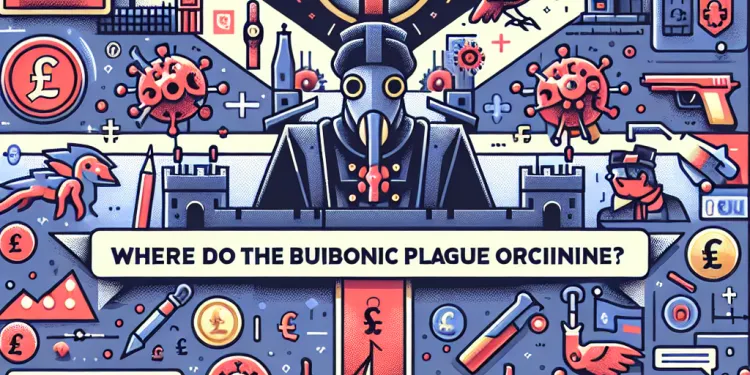
Where did the bubonic plague originate?
Relevance: 63%
-

How can the bubonic plague be treated?
Relevance: 62%
-
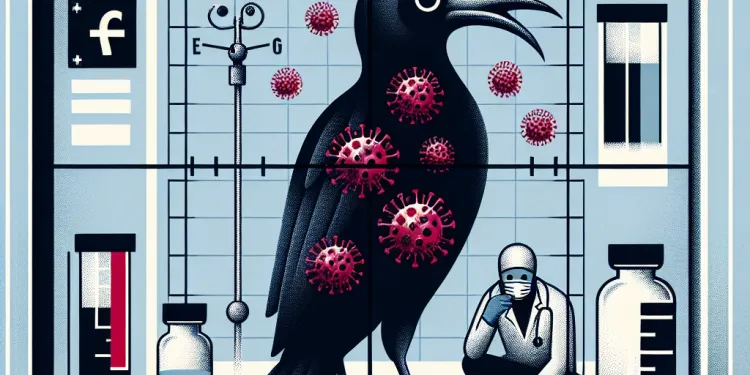
What are the symptoms of the bubonic plague?
Relevance: 61%
-

Did the bubonic plague affect only Europe?
Relevance: 60%
-

What is the mortality rate of untreated bubonic plague?
Relevance: 60%
-
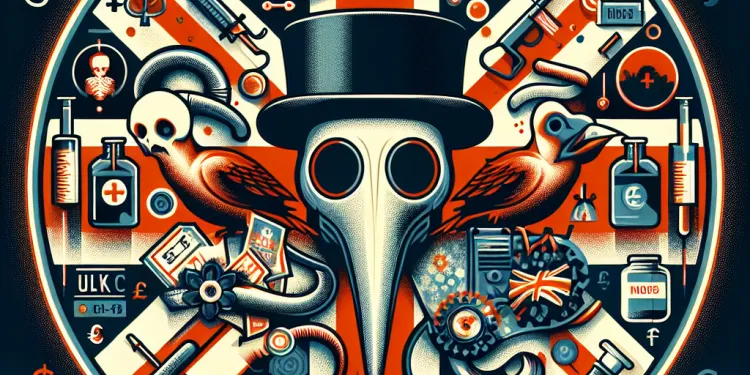
What historical event is the bubonic plague known for?
Relevance: 59%
-
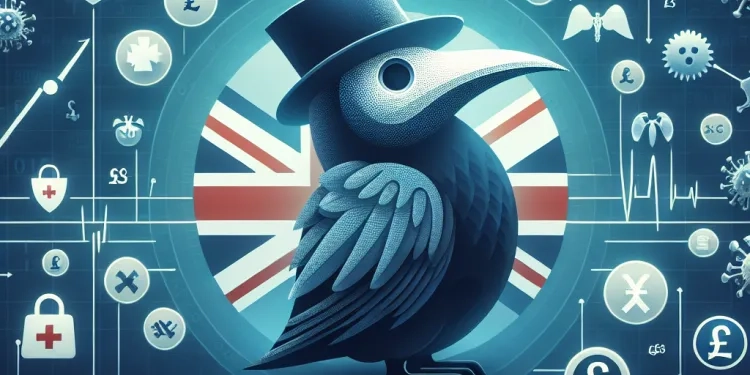
What advancements have been made in understanding the bubonic plague?
Relevance: 58%
-

How was the bubonic plague controlled historically?
Relevance: 58%
-

Can the bubonic plague become resistant to antibiotics?
Relevance: 57%
-

Are there modern outbreaks of bubonic plague?
Relevance: 46%
-
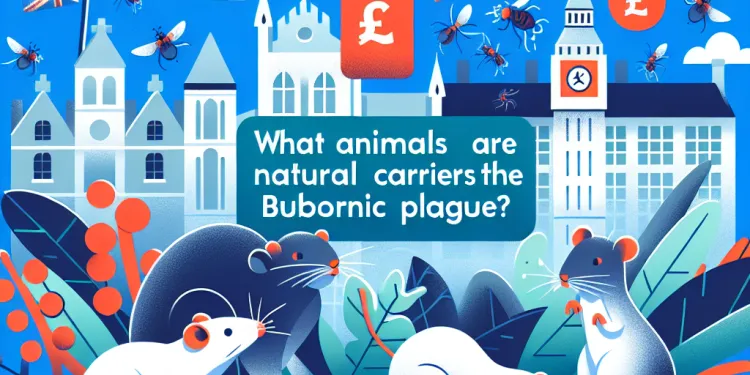
What animals are natural carriers of the bubonic plague?
Relevance: 43%
-
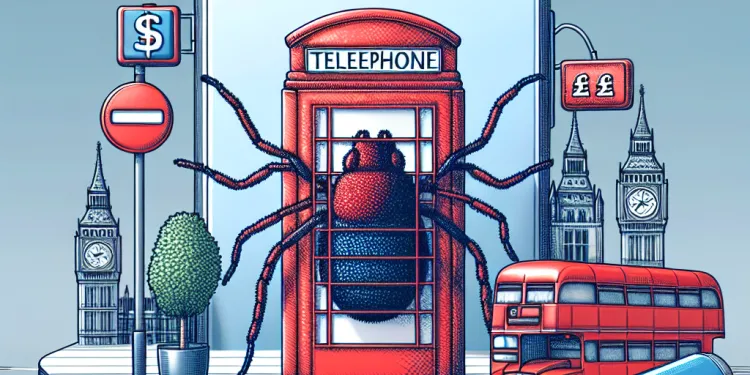
Is Lyme disease contagious between humans?
Relevance: 38%
-

What public health measures are important for managing the plague?
Relevance: 35%
-

What is a bubo?
Relevance: 33%
-

Are nits contagious?
Relevance: 29%
-

Is scabies contagious?
Relevance: 28%
-

Is meningitis contagious?
Relevance: 28%
-

How contagious is measles?
Relevance: 27%
-

Can pets get scabies from humans?
Relevance: 26%
-
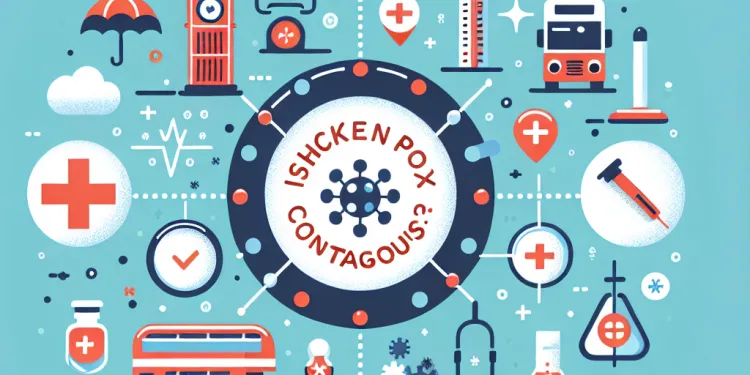
Is chickenpox contagious?
Relevance: 26%
-

Is the Super Flu contagious?
Relevance: 25%
-
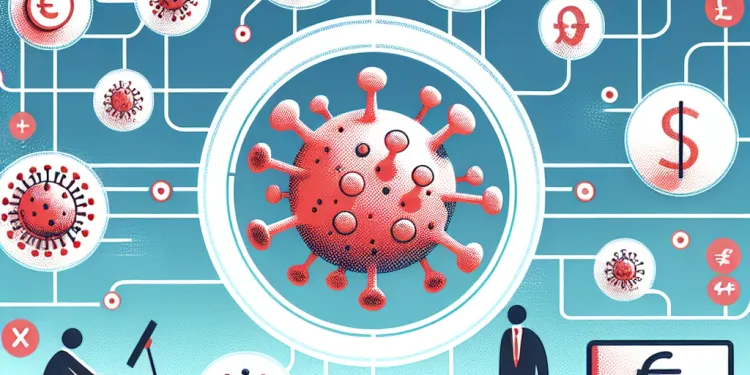
Is impetigo contagious?
Relevance: 25%
-

Is eczema contagious?
Relevance: 25%
-

Are E. coli infections contagious?
Relevance: 25%
-

Is shingles contagious?
Relevance: 24%
-

Can animals spread scabies to humans?
Relevance: 24%
-

The Human Rights Act
Relevance: 24%
-

Is shingles contagious?
Relevance: 24%
-

Is the Nimbus variant more contagious?
Relevance: 24%
-
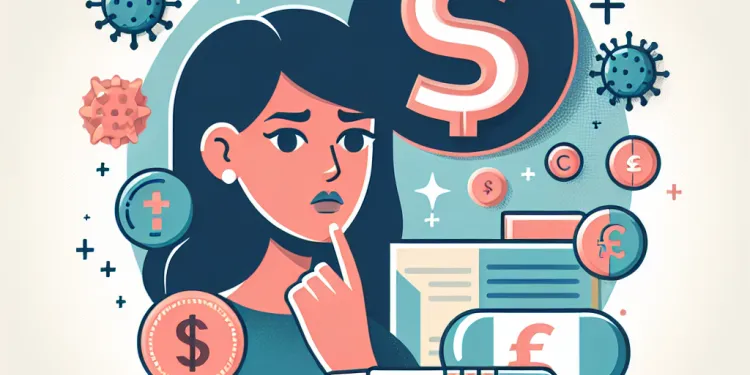
Are cold sores contagious?
Relevance: 23%
-

Is Crohn's disease contagious?
Relevance: 23%
-

Is the bubonic plague still a global health threat?
Relevance: 23%
-
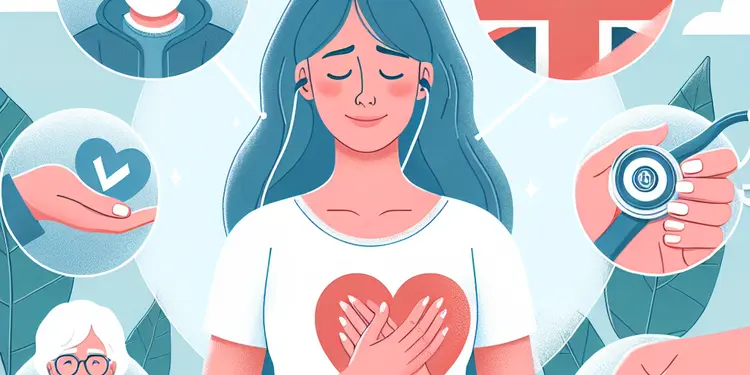
Is chronic fatigue syndrome contagious?
Relevance: 23%
-
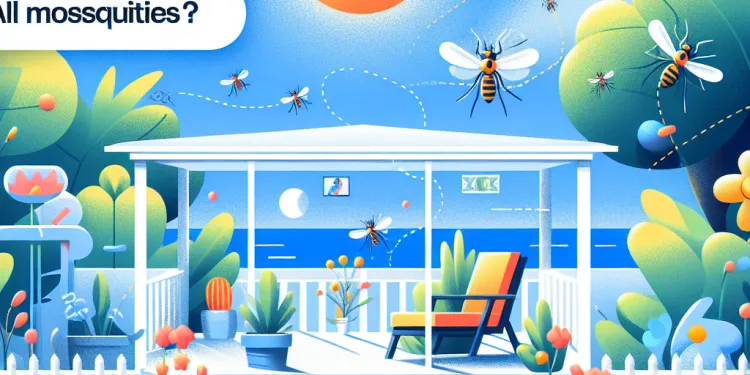
Do all mosquitoes bite humans?
Relevance: 22%
Understanding Bubonic Plague Transmission
The bubonic plague, often referred to simply as the "plague," is an infectious disease caused by the bacterium Yersinia pestis. Historically infamous for its devastating impact, especially during pandemics like the Black Death in the 14th century, it continues to exist today, though at a much reduced scale. Understanding how it spreads between humans is crucial to preventing outbreaks.
Transmission Methods
Bubonic plague primarily spreads through the bite of infected fleas. These fleas often inhabit rats and other small mammals that become reservoirs for the bacterium. The initial phase of transmission is therefore from animals to humans, rather than directly between humans. However, certain conditions can pose risks of human-to-human transmission.
Direct Human Transmission
Human-to-human transmission of the plague, particularly bubonic plague, is exceedingly rare. The most common form, bubonic plague, does not typically spread from one person to another. The bacteria localize in lymphatic tissues, causing swollen lymph nodes called buboes, hence the name “bubonic.” However, it does not spread via aerosols or direct contact under normal conditions.
Risk Factors for Person-to-Person Spread
While bubonic plague itself is not contagious between humans, if the infection progresses to pneumonic plague—a severe form involving the lungs—it can become highly contagious. Pneumonic plague can spread through respiratory droplets when an infected person coughs or sneezes, making it necessary to implement strict isolation measures during such outbreaks to prevent widespread transmission.
Preventing Transmission
In modern times, the risk of plague outbreaks is significantly minimized through improved sanitation, pest control, and healthcare facilities. Antibiotics can effectively treat the disease if administered promptly, substantially reducing the fatality rate. Avoiding contact with wild animals in areas where the plague is present, and taking precautions to prevent flea bites, remain integral preventive measures.
Conclusion
In summary, the bubonic plague itself is not highly contagious between humans. The primary route of infection is through fleas that have bitten infected animals. Direct human-to-human transmission becomes a concern mainly with pneumonic plague, which necessitates respiratory precautions. Through awareness and appropriate healthcare interventions, the risks associated with this ancient disease are limited, although it serves as a reminder of the importance of maintaining robust public health systems.
Understanding How Bubonic Plague Spreads
The bubonic plague is a disease caused by a germ called Yersinia pestis. It is famous for causing lots of sickness in the past, like during the Black Death in the 14th century. It still exists today but is less common. Knowing how it spreads can help stop it from affecting people.
How It Spreads
Bubonic plague mainly spreads through flea bites. Fleas live on rats and other small animals. These animals carry the germ. When a flea bites them and then bites people, it can spread the plague. The disease usually does not spread directly from one person to another.
Spreading Between People
Bubonic plague does not usually spread from person to person. It causes swollen areas called buboes. The germs stay in these areas and do not spread through air or touch.
When It Can Spread Between People
If bubonic plague turns into a lung disease called pneumonic plague, it can spread easily. This happens if a sick person coughs or sneezes. When this happens, people need to be kept apart to stop it from spreading.
Stopping It from Spreading
Today, the plague doesn't spread much because of better hygiene and health care. Doctors can treat it with medicine if given quickly, which helps save lives. People should stay away from wild animals and avoid flea bites in places where the plague is found.
Conclusion
To sum up, the bubonic plague usually does not spread from person to person. It spreads mostly through fleas that bite sick animals. If it turns into pneumonic plague, it can spread more easily, so precautions are necessary. Understanding and using good healthcare can keep this old disease from causing big problems.
Frequently Asked Questions
Is the bubonic plague contagious between humans?
The bubonic plague is primarily transmitted to humans through the bites of infected fleas and is not typically spread from person to person.
How is bubonic plague transmitted?
Bubonic plague is mainly transmitted through the bite of infected fleas, which are usually found on rodents.
Can human-to-human transmission occur with the bubonic plague?
Human-to-human transmission of bubonic plague is rare. Pneumonic plague, however, can spread between humans through respiratory droplets.
What role do fleas play in the spread of bubonic plague?
Fleas can carry Yersinia pestis, the bacterium responsible for bubonic plague, and transmit it to humans and animals when they bite.
Can the bubonic plague be spread through the air?
Bubonic plague is not spread through the air, but pneumonic plague, another form of plague, can be spread by respiratory droplets.
Is the bubonic plague still contagious today?
Yes, bubonic plague is still contagious today primarily through flea bites, but effective antibiotics can treat it.
How can people avoid contracting the bubonic plague?
To avoid bubonic plague, avoid flea bites by using insect repellent and staying away from areas with high rodent populations.
What precautions are taken to prevent the spread of bubonic plague?
Preventing flea bites, controlling rodent populations, and early treatment with antibiotics are key strategies to prevent spreading.
Were there historical cases of human-to-human transmission of bubonic plague?
Historically, human-to-human transmission of plague was rare and usually associated with the pneumonic form during outbreaks.
Can animals transmit the bubonic plague to humans?
Yes, animals such as rodents can carry infected fleas that transmit the disease to humans.
What is the difference between bubonic and pneumonic plague?
Bubonic plague affects the lymph nodes and is spread by fleas, while pneumonic plague affects the lungs and can spread through the air.
Can the bubonic plague be treated?
Yes, the bubonic plague can be effectively treated with antibiotics if caught early.
Is there a vaccine for the bubonic plague?
There isn't a widely used vaccine for the plague, but research and vaccines exist for those at high risk.
What should you do if you suspect you have the bubonic plague?
Seek immediate medical attention if you suspect you have the bubonic plague to start treatment as soon as possible.
How long does it take for symptoms of bubonic plague to appear?
Symptoms typically appear 2 to 6 days after exposure to the bacterium Yersinia pestis.
Can the bubonic plague develop into pneumonic plague?
Yes, untreated bubonic plague can develop into pneumonic plague, which affects the lungs and is more contagious.
Has bubonic plague been eradicated?
No, the bubonic plague has not been eradicated, but it is rare and treatable with modern medicine.
What regions are most affected by the bubonic plague today?
Bubonic plague can still be found in certain parts of Africa, Asia, and the Americas, particularly where there are high rodent populations.
Why is human-to-human transmission of bubonic plague rare?
Human-to-human transmission is rare because the primary mode of transmission is through flea bites rather than direct person-to-person contact.
Have outbreaks of bubonic plague occurred in modern times?
Yes, there have been outbreaks in modern times, but they are typically small and controlled effectively with antibiotics.
Can people give the bubonic plague to each other?
The bubonic plague is an illness you can catch. It can spread from person to person. If someone is sick, try to stay away from them.
Here are some tips:
- Wash your hands often.
- Cover your mouth when you cough or sneeze.
- See a doctor if you feel sick.
The bubonic plague mostly spreads to people from bites of fleas that carry the disease. It usually does not spread from one person to another.
How does the bubonic plague spread?
The bubonic plague spreads through flea bites. Fleas are tiny bugs. They can carry the disease from animals to people.
Here are some tips to help understand:
- Fleas often live on rats or other small animals.
- If a flea bites an infected animal, it can pick up the disease.
- If that flea then bites a person, the person can get sick.
Bubonic plague spreads when fleas that are sick bite you. These fleas often live on rats and mice.
Can people give the bubonic plague to each other?
The question is asking if the bubonic plague can spread from one person to another.
Here is what you need to know:
- The bubonic plague is a sickness caused by germs.
- The germs usually spread from animals like rats to people.
- It is rare for people to spread the bubonic plague to each other.
A supportive tool:
- Pictures can help explain how germs spread.
It is not common for people to give each other bubonic plague. But there is another kind called pneumonic plague. This can spread between people when they cough or sneeze.
How do fleas spread the bubonic plague?
Fleas can make people and animals sick. They spread a disease called the bubonic plague. Fleas are tiny insects that bite. They carry the plague from sick animals to other animals and people.
When a flea bites, it can spread germs. These germs make people very sick. It is important to stay away from fleas if you can.
To stay safe from fleas, you can use bug sprays. Keep your pets clean to help stop flea bites too.
Fleas are tiny bugs that can make people and animals very sick. They carry bad germs called Yersinia pestis. This germ can cause something called bubonic plague. Fleas spread these germs when they bite.
If reading is hard, you can try listening to the text or ask someone to read it out loud. Pictures or videos can also help you understand better.
Can people get the bubonic plague from the air?
The bubonic plague is a sickness that can make people very sick. It is mostly spread by fleas that bite, not through the air.
But sometimes, in rare cases, it can spread through tiny drops in the air if a person has a different kind called pneumonic plague.
It is always good to learn more and ask a doctor if you have questions.
Helpful tips: Use pictures or videos to learn more about the bubonic plague. It can make learning easier!
The bubonic plague does not spread through the air. But there is another type of plague called pneumonic plague. This kind can spread when someone coughs or sneezes.
Can people still catch the bubonic plague today?
Yes, people can still catch the bubonic plague today. It spreads through bites from fleas. But don't worry! Medicine called antibiotics can make you better if you catch it.
How can people stay safe from catching the bubonic plague?
To stay safe from the bubonic plague, don't get bitten by fleas. Use bug spray and keep away from places where there are a lot of rats or mice.
How do people stop the spread of bubonic plague?
Here are some ways to help stop bubonic plague:
- Keep places clean and tidy.
- Use medicine if you get sick. A doctor can help with this.
- Stay away from sick animals or people.
- Wear gloves if you need to touch animals.
Remember, ask a grown-up or a doctor if you have questions!
To stop flea bites and keep rats and mice away, it is important to act quickly. Using medicine early can help stop the spread of illness.
Did people give each other the bubonic plague in the past?
The bubonic plague is a very bad sickness. A long time ago, did people pass this sickness from one person to another?
Reading Tip: If you find this hard, ask someone to read it with you. Use your finger to follow the words. Take your time.
In the past, it was rare for people to pass the plague to each other. This usually happened when they had a special kind, called the lung plague, during big sickness outbreaks.
Can animals give the bubonic plague to people?
Yes, some animals can give the bubonic plague to people. The plague is a sickness. It comes from germs.
Animals like rats, mice, and squirrels can have these germs. The germs can also live on fleas. Fleas are tiny bugs. They often bite animals and people.
People can get sick when a flea with the germs bites them. To stay safe, try not to touch wild animals. Ask an adult if you are not sure.
Using bug spray and wearing clothes that cover your skin can help keep fleas away. You can also ask a grown-up to help with cleaning up areas where fleas might be.
Yes, some animals like mice and rats can have fleas. These fleas can make people sick.
What is the difference between bubonic plague and pneumonic plague?
The bubonic plague makes you very sick. It comes from fleas on rats. You get bumps on your body. These bumps hurt a lot.
The pneumonic plague is another type of plague. It affects your lungs. You can catch it from other people who are sick.
Sometimes, the two plagues can happen at the same time.
To help understand better, try using pictures or videos to learn more. Ask a teacher or carer for help if you're confused.
The bubonic plague makes lumps under your skin swell up. You can catch it from flea bites.
The pneumonic plague affects your lungs. You can catch it from the air if people with this type of plague cough or sneeze.
If you find this hard to read, try using an online reading tool that can read text out loud for you.
Can the bubonic plague be treated?
Yes, the bubonic plague can be treated. Doctors use special medicine called antibiotics to help people get better. It is important to see a doctor quickly if someone thinks they have it.
People can use tools or get help from others to understand more. Talking to a doctor or nurse is a good idea. They can explain things in a way that is easy to understand.
Yes, medicine can help treat the bubonic plague if doctors find it early.
Is there a shot to stop the bubonic plague?
The bubonic plague is a sickness. People used to get it a long time ago. It made many people very sick.
Today, doctors have found ways to help. They have shots to protect us from some sicknesses. These shots are called vaccines.
Ask a doctor if you want to know more. They can help you understand and stay healthy.
If you need help reading, you can use:
- Online tools to read the text out loud
- Apps that show words in a bigger size
There is no common vaccine for the plague. But, scientists are working on it. Some vaccines are made for people who need them the most.
What to Do if You Think You Have Bubonic Plague
If you feel sick and think it might be bubonic plague, here is what you can do:
- Tell an adult you trust right away.
- Go to the doctor as soon as you can.
- Doctors can help you feel better.
- Wash your hands often to stay clean.
Using picture charts or asking for help from someone can make it easier to understand what to do.
If you think you have the plague, go to the doctor right away to get help fast.
When do you start feeling sick if you get the bubonic plague?
If you get the bubonic plague, you will feel sick in 1 to 7 days.
You may want to ask a grown-up or a doctor for help to understand more.
Signs of being sick usually show up 2 to 6 days after you come into contact with the germ called Yersinia pestis.
Can the bubonic plague turn into pneumonic plague?
The bubonic plague can change into something called pneumonic plague.
The bubonic plague makes people very sick with fever and swollen bumps.
If the germs from bubonic plague move to the lungs, it becomes pneumonic plague.
Pneumonic plague affects the lungs and breathing.
Ask a doctor if you want to know more.
Yes, if the bubonic plague is not treated, it can turn into pneumonic plague. This type of plague affects the lungs and can spread to other people more easily.
Is the bubonic plague gone forever?
No, the bubonic plague is not gone forever. But it does not happen often, and doctors can help people get better with today’s medicine.
Where is the bubonic plague a big problem today?
Bubonic plague is a sickness you can still find in some places in the world. People see it in parts of Africa, Asia, and the Americas. It happens more in places with lots of rats and mice.
Why is it rare for people to spread bubonic plague to each other?
Bubonic plague is a disease.
It spreads mainly from fleas that bite rats and then bite people.
People do not usually spread it to each other because it mostly comes from flea bites.
If someone is worried, they can talk to a doctor for more help.
It is not common for people to give the illness to each other. This is because it mostly spreads from flea bites, not from touching or being near someone who is sick.
Has the bubonic plague happened recently?
The bubonic plague is an illness from a long time ago. But it has also happened in recent years. If you want to know more, you can use pictures or videos to help understand better. Talking with someone can also help you understand what the bubonic plague is.
Yes, there have been times when people got sick. But today, doctors can stop it from spreading with medicine. So it doesn’t get too big.
Useful Links
This website offers general information and is not a substitute for professional advice.
Always seek guidance from qualified professionals.
If you have any medical concerns or need urgent help, contact a healthcare professional or emergency services immediately.
Some of this content was generated with AI assistance. We’ve done our best to keep it accurate, helpful, and human-friendly.
- Ergsy carfully checks the information in the videos we provide here.
- Videos shown by Youtube after a video has completed, have NOT been reviewed by ERGSY.
- To view, click the arrow in centre of video.
- Most of the videos you find here will have subtitles and/or closed captions available.
- You may need to turn these on, and choose your preferred language.
- Go to the video you'd like to watch.
- If closed captions (CC) are available, settings will be visible on the bottom right of the video player.
- To turn on Captions, click settings .
- To turn off Captions, click settings again.
More Items From Ergsy search
-

Is the bubonic plague contagious between humans?
Relevance: 100%
-

What is Bubonic Plague?
Relevance: 76%
-

What is the bubonic plague?
Relevance: 70%
-

How is the bubonic plague transmitted?
Relevance: 69%
-

Are there vaccines for the bubonic plague?
Relevance: 65%
-

Can the bubonic plague be prevented?
Relevance: 65%
-

Where did the bubonic plague originate?
Relevance: 63%
-

How can the bubonic plague be treated?
Relevance: 62%
-

What are the symptoms of the bubonic plague?
Relevance: 61%
-

Did the bubonic plague affect only Europe?
Relevance: 60%
-

What is the mortality rate of untreated bubonic plague?
Relevance: 60%
-

What historical event is the bubonic plague known for?
Relevance: 59%
-

What advancements have been made in understanding the bubonic plague?
Relevance: 58%
-

How was the bubonic plague controlled historically?
Relevance: 58%
-

Can the bubonic plague become resistant to antibiotics?
Relevance: 57%
-

Are there modern outbreaks of bubonic plague?
Relevance: 46%
-

What animals are natural carriers of the bubonic plague?
Relevance: 43%
-

Is Lyme disease contagious between humans?
Relevance: 38%
-

What public health measures are important for managing the plague?
Relevance: 35%
-

What is a bubo?
Relevance: 33%
-

Are nits contagious?
Relevance: 29%
-

Is scabies contagious?
Relevance: 28%
-

Is meningitis contagious?
Relevance: 28%
-

How contagious is measles?
Relevance: 27%
-

Can pets get scabies from humans?
Relevance: 26%
-

Is chickenpox contagious?
Relevance: 26%
-

Is the Super Flu contagious?
Relevance: 25%
-

Is impetigo contagious?
Relevance: 25%
-

Is eczema contagious?
Relevance: 25%
-

Are E. coli infections contagious?
Relevance: 25%
-

Is shingles contagious?
Relevance: 24%
-

Can animals spread scabies to humans?
Relevance: 24%
-

The Human Rights Act
Relevance: 24%
-

Is shingles contagious?
Relevance: 24%
-

Is the Nimbus variant more contagious?
Relevance: 24%
-

Are cold sores contagious?
Relevance: 23%
-

Is Crohn's disease contagious?
Relevance: 23%
-

Is the bubonic plague still a global health threat?
Relevance: 23%
-

Is chronic fatigue syndrome contagious?
Relevance: 23%
-

Do all mosquitoes bite humans?
Relevance: 22%


